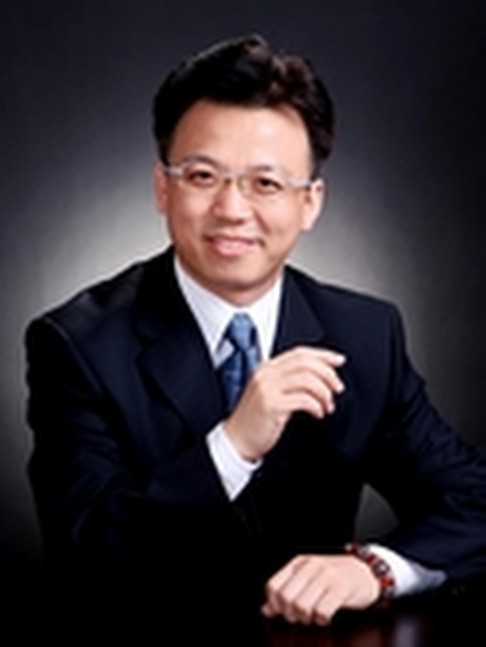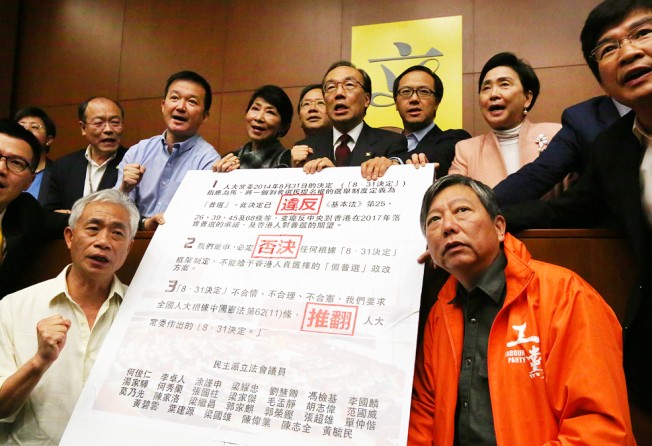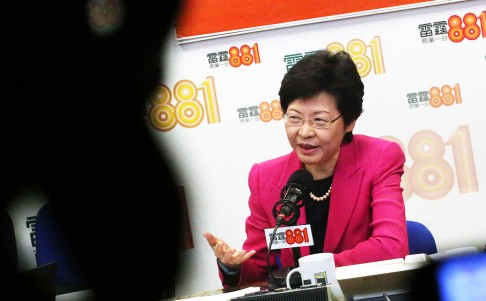
Public support for 2017 reform package will not be enough to sway pan-democrats, says mainland expert
The key issue is whether lawmakers who have vowed to reject blueprint for reform can forge consensus with Beijing, says mainland expert

Mobilising public opinion will not be enough to force pan-democrats to support electoral reform, as the crux of the issue is whether they are willing to forge a consensus with Beijing, a mainland expert on Hong Kong affairs says.
Jiang Shigong, a core member of the Chinese Association of Hong Kong and Macau Studies, said he hoped Beijing officials and pan-democrats would engage in dialogue.

It requires chief executive hopefuls who have secured "recommendations" from at least 120 members of the 1,200-strong nominating committee to then gain majority support from the body. The top two or three candidates will go forward to a "one man, one vote" public election.
The weight of public opinion in favour of settling for a less-than-ideal version of universal suffrage is seen as the government's last hope of winning the support of the pan-democrats to pass the legislation.
Some Hong Kong officials have suggested that backing from over 60 per cent of Hongkongers might be enough to persuade pan-democrats to support the reform package, while Qi Pengfei, another mainland academic on Hong Kong affairs, believed pan-democrats would only be persuaded to vote in favour if public support was near 70 per cent.
But Jiang told the Post that the government should not rely on the weight of public opinion. "In 2005, pan-democrats voted down the Hong Kong government's proposal for the 2007-08 elections although nearly 60 per cent backed the package."
Jiang, who advises the central government on Hong Kong policies, said it was more meaningful to forge a consensus between pan-democrats and Beijing.
"Pan-democrats should recognise Beijing's authority over Hong Kong while fighting for the city's democracy," he said. "They should answer the question of whether they actually use Hong Kong as a base to subvert the communist regime on the mainland through their fight for democracy."

But she said the media might not be given advance notice. "I am a bit worried and have reservations if such chaotic scenes like last night [Wednesday] are repeated every time."
Chief Executive Leung Chun-ying labelled some of the protesters "uncivilised".
The chairman of the Federation of Trade Unions, Stanley Ng Chau-pei, who is also a spokesman for the Beijing-loyalist Alliance for Peace and Democracy, said the alliance would mobilise pro-establishment organisations and launch a citywide campaign to back the package.
The US consulate in Hong Kong said legitimacy would be greatly enhanced if the chief executive was selected through universal suffrage and people had a meaningful choice of candidates. "It is for the Hong Kong government, the Legco and the people of Hong Kong to decide whether or not to pass this proposal," it said.